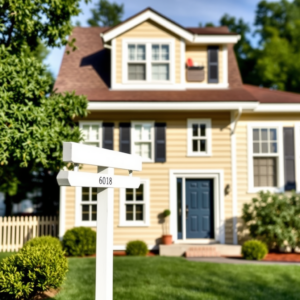A house fire can be a traumatizing moment in your life. It is essential to become informed on what happens to your mortgage post a calamity. A crucial factor in this scenario is knowing what makes a house habitable for mortgage requirements. Even adequately insured and even with a viable source of disposable income, piecing together a new, functioning life was not the easiest thing to do after losing your home to a fire.

Do You Still Have to Pay Your Mortgage?
When your home is lost in a fire, that mortgage does not evaporate. No matter how shabby the home gets, the contract remains valid between the two parties: borrower and lender. So long as the mortgage remains unpaid, the lender has a claim on the property, even if that property is severely damaged. This is why homeowners insurance is critical—it provides financial protection to help repair or rebuild your home and continue meeting mortgage obligations.
After unfortunate occurrences such as fire emergencies, the greatest help you could ask for are the insurance payouts. Authorized funds may be used for temporary housing, repairs, or maybe even paying the lender in some cases, depending on policies. However, the lender may be involved directly in how these funds are dispersed, as he or she is also interested in having the property repaired.
What Makes a House Habitable for Mortgage After a Fire?
To continue meeting mortgage requirements, your home must meet the standards of habitability. But what makes a house habitable for mortgage purposes? Normally, habitable houses are usually characterized by a strong structure, an effective roof, and working systems for plumbing, electrical supply, and heating. Lenders consider these factors important for a reason. They ensure the property’s value is maintained over time. This value serves as collateral in case the loan requires reassessment after an event.
If a fire compromises your home’s habitability—such as causing major roof damage or destroying essential systems—you’ll need to work with contractors and insurance providers to bring it back to livable conditions. Your lender may request updates on repairs to ensure your property meets the required standards.
How Homeowners Insurance Impacts Your Mortgage
Homeowners insurance is a lifeline in this type of crisis. It is standard for most policies to carry fire damage coverage to assist with repair or rebuilding costs. The lender has an interest in the property, so any insurance payouts for that purpose may be issued to both you and the lender jointly. Some lenders set up an escrow account to ensure the funds are properly spent on restoring the property.
The insurance should help pay off the remaining mortgage if the home is completely destroyed and you choose not to rebuild it. This is why carrying proper homeowners insurance is a non-negotiable element of your mortgage agreement. In case of a major calamity, it protects you and the lender.
Options If Rebuilding Isn’t Feasible
Every now and then, homes are even put on hold for later reconstruction plans after the fire. That is where destruction exceeds limits, or people prefer relocating because of it. If the bank is proven to be solvent, it must be fully repaid using the savings from the insurance payout. Insurance payments are typically sent directly to the lender to cover any outstanding loan amounts.
If your insurance payout doesn’t cover your mortgage, you’ll need to pay the remaining balance unless you arrange other terms with your lender. Selling the land where your home stands could also be an option to help cover the remaining debt.
Temporary Housing and Relocation Costs
Rebuilding often requires relocating to temporary housing. Many homeowners’ policies include coverage for additional living expenses (ALE). This coverage may help with the costs of renting a house. It could also cover staying in a hotel or using other short-term housing options. Such support could be a breather financially while you concentrate on repairs or rebuilding.
In this context the concerned lenders will sometimes inspect the remodeling work on the property. If the home is uninhabitable for a long time, it could also cause issues with your mortgage, especially if it affects the house value. Keep your lenders informed throughout the process to avoid unnecessary stress.
Lender Expectations During the Recovery Process
Once you have informed your lender of the fire, they will explain what they expect from you throughout the recovery period. These expectations usually include timelines for repairs and evidence for continued insurance coverage. Always remember that the lender has a legal right to demand how the insurance payout is actually spent. They may want to see detailed reports of the work done on your home. Depending on the agreement, they might also require receipts. If the house is not restored to a habitable condition on time, the lender could take further action. It could, for example, declare the mortgage in default-and this is something every homeowner would do anything to avoid.
Is Refinancing an Option After a Fire?
Depending on the extent of the damage, refinancing your mortgage after a fire might be an option. Homeowners with insurance and a clear rebuilding plan may qualify for refinancing with better terms or to help cover rebuilding costs. However, the ability to refinance will often hinge on what makes a house habitable for mortgage approval. The lender will assess if the repairs are enough to restore the home’s value and if the rebuilt property can build equity.
By being proactive, transparent, and organized, you can protect your financial future while rebuilding your home. With the right approach, you can manage your mortgage and build a stronger, more stable foundation for the future.
Previous